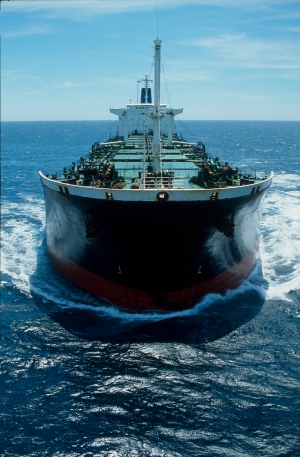


(Posted on 27/01/23)
Investors in middle aged dry bulk tonnage may be cheered by the impact of sustained higher recycled steel values, according to research commissioned by the Baltic Exchange.
Analysis of the dry bulk carrier values undertaken by consultancy Zuoz Industrial looks at the potential impact of longer-term higher ship recycling values on five year old tonnage. With recycled steel an increasingly popular choice, thanks to its lower carbon footprint when compared with virgin steel, the paper discusses whether higher steel recycle values are a longer-term trend. Although down 20% since its April 2022 high, the price of lightweight steel is ~$520/ldt and more than double the historic average since 2009.
“Should the current multi-year higher cycle value turn out to be a fundamental risk trend supported by some of the evolving demand factors, the fundamental risk of investing middle aged dry bulk tonnage, particularly in softer freight markets, will have decreased,” says report author Urs Dür.
The Baltic Exchange publishes a set of investor indices for the major dry bulk sectors which includes the Baltic Residual Risk Index, a ratio of the residual value of the vessel against its recycling value, and the Baltic Residual Value Index, which calculates the value by taking the written down cost of a five year old vessel by fixing the earnings on the basis of a five year timecharter and adding back the operating costs.
The Baltic Exchange Investor Indices (BII) are an easy to use online analytical dashboard displaying data relevant to vessel investment decisions, residual value, health of earnings, spot and five-year timecharter earnings, purchase & recycling values, and running costs.
They offer a high level of clarity and transparency for investors in capesize, panamax, supramax and handysize vessel types.
Tanker and gas carrier assets will also be added to the service at a later date.
Subscribers to the Baltic Exchange Investor Indices are offered a health of earnings index which compares spot income with daily running costs; a residual value index which provides an implied write-down value of the vessel over five years; and an implied residual risk assessment which gives the recycling steel value of the vessel as a ratio of its residual value.
The Baltic Exchange is the world’s only independent source of maritime market information for the trading and settlement of physical and derivative contracts. Its international community of over 600 members encompasses the majority of world shipping interests and commits to a code of business conduct overseen by the Baltic.
Baltic Exchange members are responsible for a large proportion of all dry cargo and tanker fixtures as well as the sale and purchase of merchant vessels.
AtoB@C Shipping, a subsidiary of ESL Shipping, has announced the successful delivery of Fleximar, the... Read more
Western Bulk, together with reputable Norwegian partners A/S J. Ludwig Mowinckels Rederi, Premium Maritime... Read more
Pacific Basin Shipping Limited, one of the world’s leading dry bulk shipping companies, has announced... Read more
Columbia Group anticipates a period of strong expansion as an increasing number of international shipowners... Read more
Norse?Ship Management has expanded its use of Smart Ship Hub’s high frequency sensor data and... Read more
As the maritime industry gears up to welcome the IMO’s STCW bullying and harassment training amendments... Read more
NORDEN has acquired the cargo activities of Taylor Maritime in Southern Africa (previously operated... Read more
Philippos Ioulianou, Managing Director of EmissionLink, has warned the IMO’s decision to delay... Read more
VIKAND has highlighted the need for cultural change in the maritime sector as reports of bullying, harassment... Read more
The maritime industry is experiencing a period of significant transformation, driven by rapidly evolving... Read more